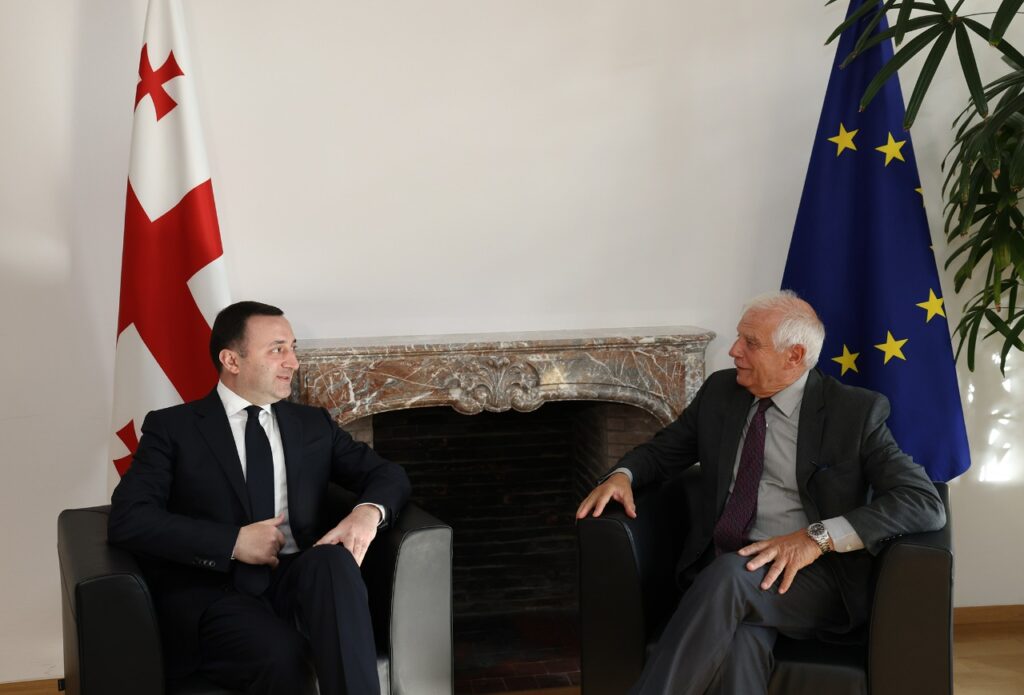Georgia’s EU membership perspective and steps to be taken toward receiving the status were the key issues discussed at the meeting held between Georgian Prime Minister Irakli Garibashvili and Josep Borrell, EU High Representative for Foreign Affairs and Security Policy on Tuesday, prior to the Georgia-EU Association Council’s meeting in Brussels.
The Prime Minister believes the European perspective received by the country in June is a “strong motivation” and, at the same time, an “enormous responsibility” for Georgia, the government’s press office reported.
Irakli Garibashvili stated that “the current political polarization in Georgia is a serious challenge for the country, and this issue calls for resolution, the reason why the Government spares no effort to improve the political environment.” However, according to the Prime Minister similar engagement is also required from the opposition parties, the press statement reads.
“Special emphasis was placed on the fact that Georgia responded quickly to the European Council’s resolution and produced an action plan for implementing the EU’s 12 priorities. The Prime Minister emphasized that working groups engaging all relevant stakeholders were created for each priority. It was noted that success in the process of implementing the ambitious reform agenda will be impossible without strong help and assistance from the EU. The Prime Minister expressed hope that, since Georgia has become part of the EU’s enlargement policy, the financial tools available to the countries in the process of accession will now apply to Georgia as well, which will create more opportunities on the path to Georgia’s EU membership,” the statement went on.
The parties also discussed the region’s security environment and the situation in Georgia’s occupied territories. As the Prime Minister pointed out, it is clear to all that Russia is carrying out the same policy toward Georgia, Ukraine, and Moldova. The Prime Minister expressed hope that the EU will continue its unwavering support of Georgia, especially now that the risks related to the non-recognition policy of Georgia’s occupied territories are higher than ever, and the support of European partners in this direction is very important, the statement concluded.
